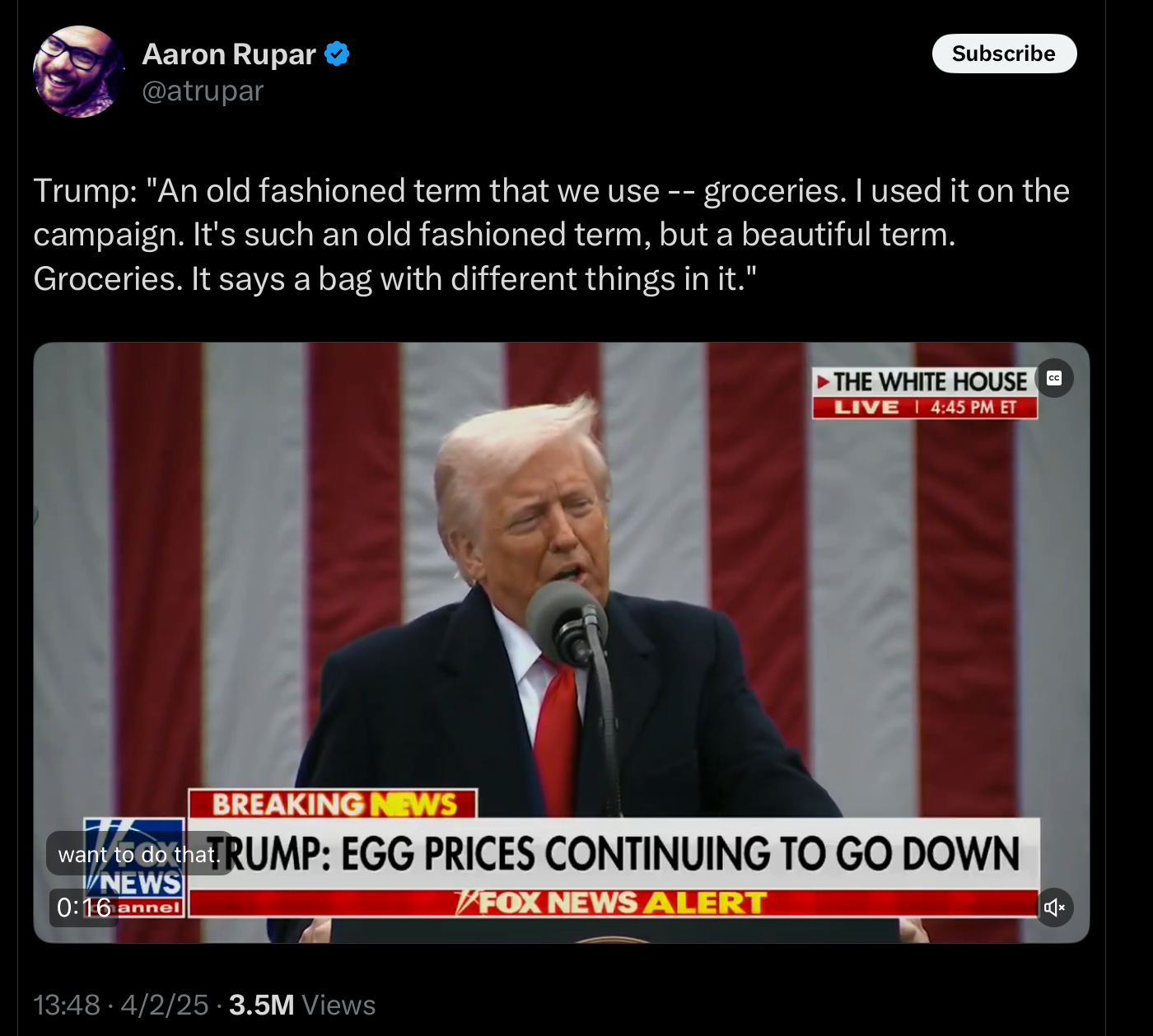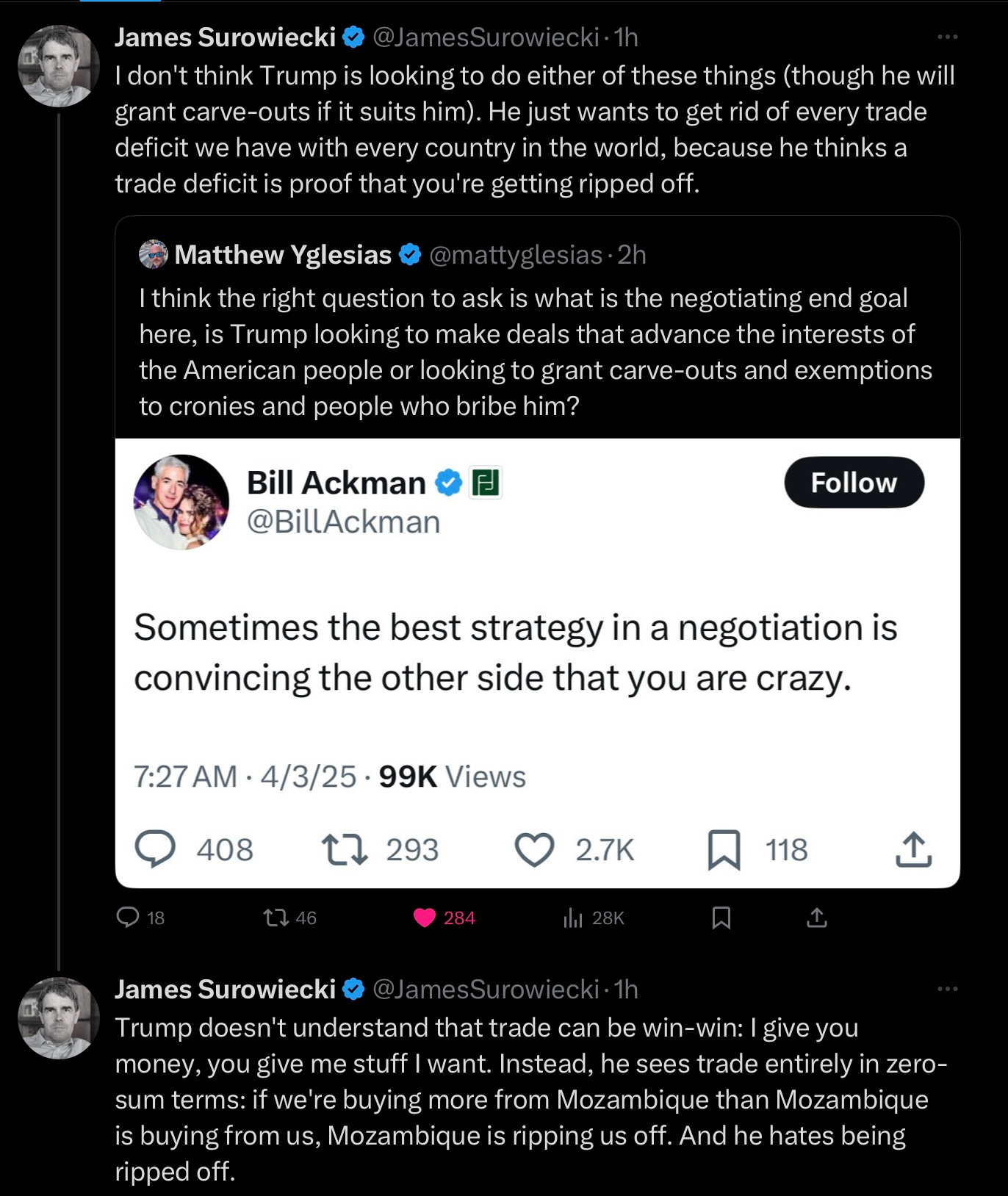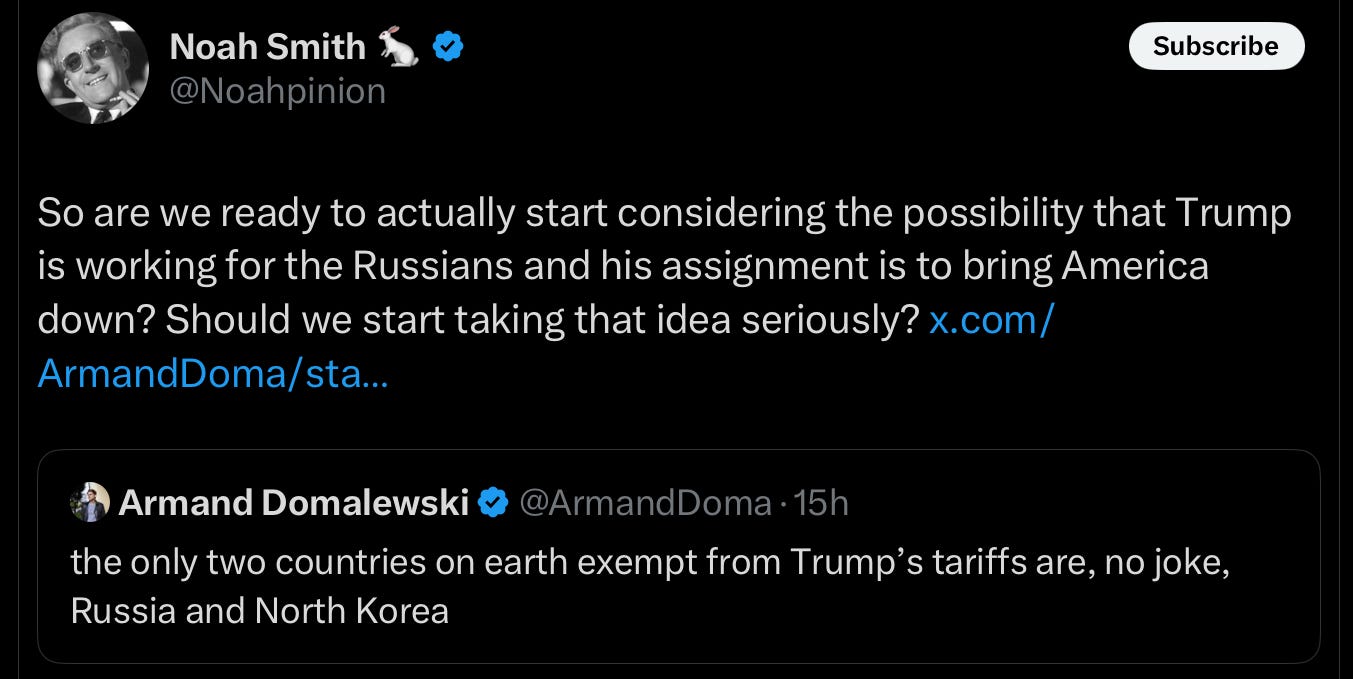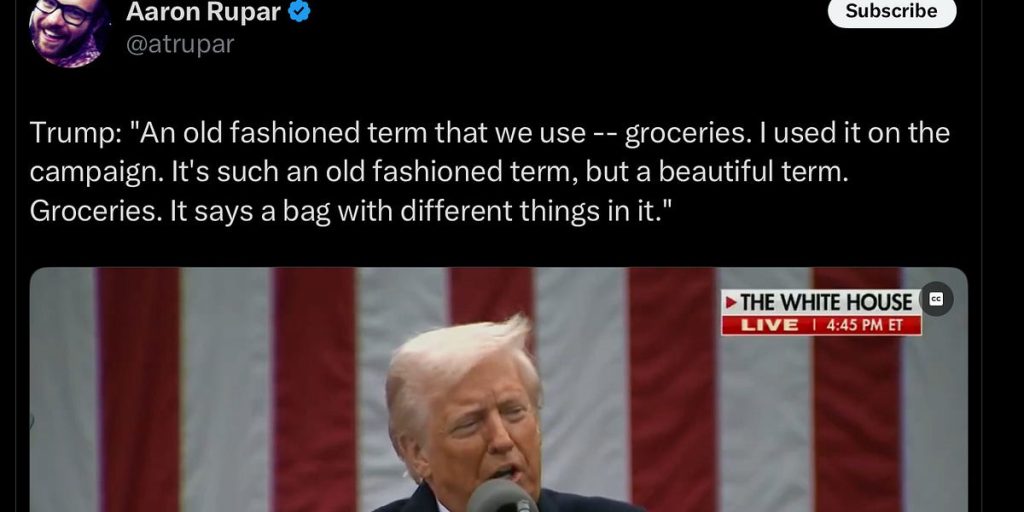Never before has an hour of Presidential rhetoric cost so many people so much. Markets continue to move …. The best estimate of the loss from tariff policy is now is closer to $30 trillion or $300,000 per family of four.
– Lawrence Summers, former US Treasury Secretary
The near-universal consensus is that President Trump’s new tariff policy (quite possibly partly written by LLMs) is likely to be among the worst economic policies in history. The Dow is 1500 points down, and many big American companies like Apple and Tesla (allegedly the beneficiaries of this policy?) are sharply down. Larry Summers estimated that the policy will cost $30 trillion dollars. Prices are sure to raise significantly. Even the Republicans in the Senate are contemplating revolt. The conservative Wall Street Journal describes it as “The Day Trump’s Tariffs Shook Wall Street and Corporate America: Markets tumble and executives scramble to grasp the scope and size of Trump’s trade barriers; ‘I almost couldn’t breathe.’
The question is why.
Why, why, why is President Trump doing something that seems so suicidal from the perspective of the United States, and indeed the whole world?
As a former psychology professor, I want to raise four possibilities: dementia, cognitive impairment, ego, and extortion (of him, by somebody else). [My April 1 column, on the alleged arrival of GPT-5, was an April Fool’s joke. This is not a joke.]
Below I consider each of these possibilities; they are not necessarily mutually exclusive.
I first publicly raised this possibility in late October, reviewing 8 possible symptoms of dementia that I had observed. The group Duty to Warn has been raising the alarm for much longer. In my October essay, I focused in part on Trump’s failure to inhibit problematic thoughts. At the time I talked about the simulated blow job that he gave on camera to a microphone, and his public fantasizing about a violent end to Liz Cheney. Another thing I focused on was his occasional bouts of incoherence.
The tariff plan might be seen as the result of of failure of inhibition. He had a (bad) idea about tariffs, and cannot let it go, even though numerous people have presumably told him it is truly terrible idea. Such a massive failure to let go, which is a particular manifestation of inhibitory failure, is a bit like a child mid temper tantrum; only here it is at world-destroying scale. (It is well-known that children’s frontal lobes and inhibition are not fully developed; in dementia, inhibition is sometimes undermined.).
A commentary Trump made yesterday on groceries is another recent bizarre moment that could indicate dementia.

James Surowiecki has an interesting analysis of why Trump might think the tariff plan is (all evidence to the contrary) a good one:

On this analysis, Trump simply isn’t sharp enough cognitively to entertain the (well-established) possibility that trade can be win-win.
I find Surowiecki’s analysis to be plausible. It is especially disconcerting inasmuch as the leader of the United States surely has had this explained to him by multiple parties over the years. But it may well be that the concept of trade as win-win truly is over his head; in no way has it entered his recent public thoughts. (Note that dementia could impair his ability to absorb and act on nuanced concepts; hypotheses 1 and 2 certainly aren’t mutually exclusive).
Trump has long seemed narcissistic; in recent months, he has appeared to want to be treated as a king. No amount of fealty to him seems to be enough; vengeance has been top of mind. Setting the agenda for the entire planet, no matter how problematic, may serve some impossible-for-him to fulfill ego needs. (Paul Krugman’s argument today that Trump’s tariffs are a misguided effort at displaying dominance is perhaps not unrelated.)
Trump’s relationship with Putin has long been a subject of concern. A number of people are being more open about this. Here are two very recent tweets capturing questions that some people have asked for a long time.

and

Given how bad these tariffs are for the US and the world, I agree that Congress should take this possibility seriously.
By any reasonable standard, yesterday’s so-called “liberation” speech was something the whole world should be concerned about.
We should ask not only how it will affect the world, but also why Trump felt compelled to commit such a massive unforced error. I have considered four possibilities, not mutually exclusive, and welcome other thoughts in the comments.
Gary Marcus was a full professor of Psychology and Neural Science at NYU, before becoming Emeritus, but is writing this as a private, concerned citizen.

